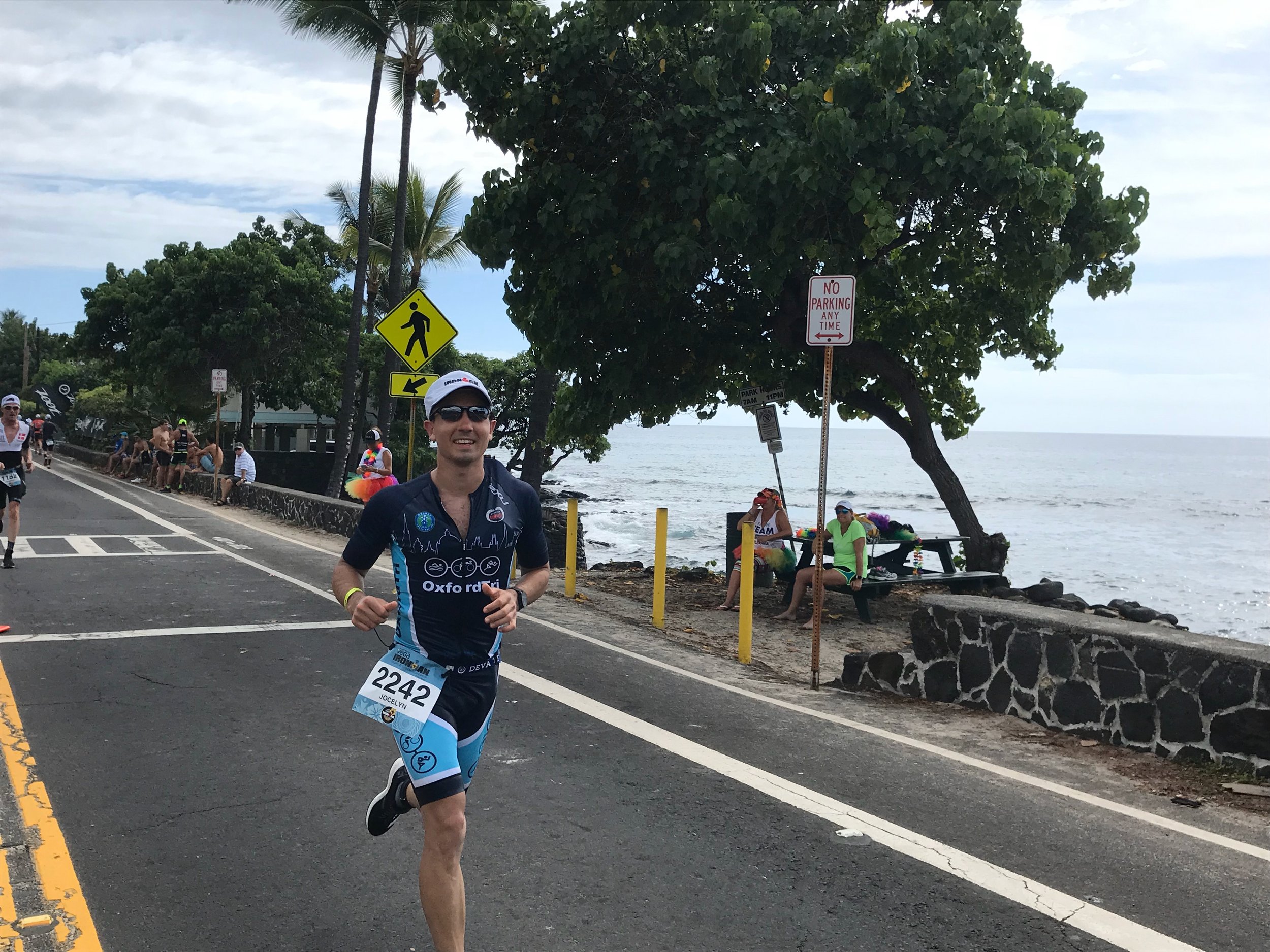Should I do a marathon before my IRONMAN?
In this article, Coach Philip looks at the classic first-time IRONMAN athlete dilemma: To do a marathon in the Spring before a Summer IRONMAN, or not? Have a read on to find out more.
A while back, I wrote an article about the death of the long run. I suggest that for triathletes, the long steady run is pointless for many triathletes as its purpose in traditional marathon plans is to build aerobic endurance, which you can do as a triathlete through cycling and swimming. If you are hoping for a 4-hour marathon, can you do 4 hours of exercise in a day? The chances are you can do that on the bike! So the need for a long run from a training perspective is reduced. However, long runs can increase the chance of injury; a reduced benefit and an increased injury risk are not helpful to any athlete.
It is common for first-time IRONMAN athletes to feel the need to put in a marathon before their first IRONMAN. If you planned a summer IRONMAN, that would mean a spring marathon. The problem is, a marathon takes a fair chunk out of your training schedule. Not for the training itself; you should be more than capable of “doing” one. Instead, it requires a mini taper (you don’t want to go into this tired) and then a couple of weeks of recovery. (Old training wisdom suggest one day of recovery for every mile racing.
Therefore, a spring marathon would take out about a month of hard training for your summer IRONMAN. On its own, that doesn’t sound too bad. But spring is such a critical training time for an IRONMAN where a lot of bike mileage sets you up for the season, so a spring marathon can be quite detrimental to your training for an IRONMAN.
So why do athletes want to do one? Often athletes want to do one for psychological reasons - to show they can go the marathon distance and have that confidence in their back pocket going into the final few weeks of an IRONMAN training. But as we can see, that confidence has to our weight the potential detriments for an athlete. Otherwise, you will be better prepared by not doing a standalone marathon!
So when should you do a marathon?
Top athletes can find a marathon within a big block of training is an effective training strategy. But this has to be a race at fatigue (higher injury risk) and for athletes who have the training load in their legs to be able to see this as a benefit rather than a milestone. So really this is an option for the experienced IRONMAN athletes, if they pose a low injury run risk.
Otherwise, triathletes should look at doing a marathon in the autumn as an end of season event where they can recover adequately afterwards, and it doesn’t impact on training for your primary race and then build their IRONMAN Training in after that.

Philip is the founder of Tri Training Harder LLP. He’s a British Triathlon Level 3 coach, and has been coaching for over a decade and is involved with mentoring and developing other coaches.
Philip has have coached athletes to European and World AG wins, elite racing, many Kona qualifications, IRONMAN podiums and AG wins.
Alongside the conventional development through many CPD courses, he has also been fortunate enough to work alongside experts in the fields of Physiotherapy, Strength and Conditioning, Nutrition, Psychology, Biomechanics, Sports Medicine. Putting this knowledge into practice he has worked with thousands of athletes to various degrees, from training camps in Portugal and around Europe, clinics in the UK and online coaching.
Visit Philip's
Coach profile
We’re here to help
Tri Training Harder are one of the leading Triathlon coaching providers in the UK, using our wealth of experience to unite scientific and technological research with already well-established and successful best practices, to create a formula for triathlon and endurance coaching that works.
The result is an honest, dynamic, yet simple new way of constructing an athlete’s training to allow them to reach their potential.
If you’re planning your next season, just starting out in the sport or are looking for extra guidance at the very top end of the field, we are here to help, and our coaches would be delighted to hear from you. You can contact us via the website, and one of the team will be in touch.

